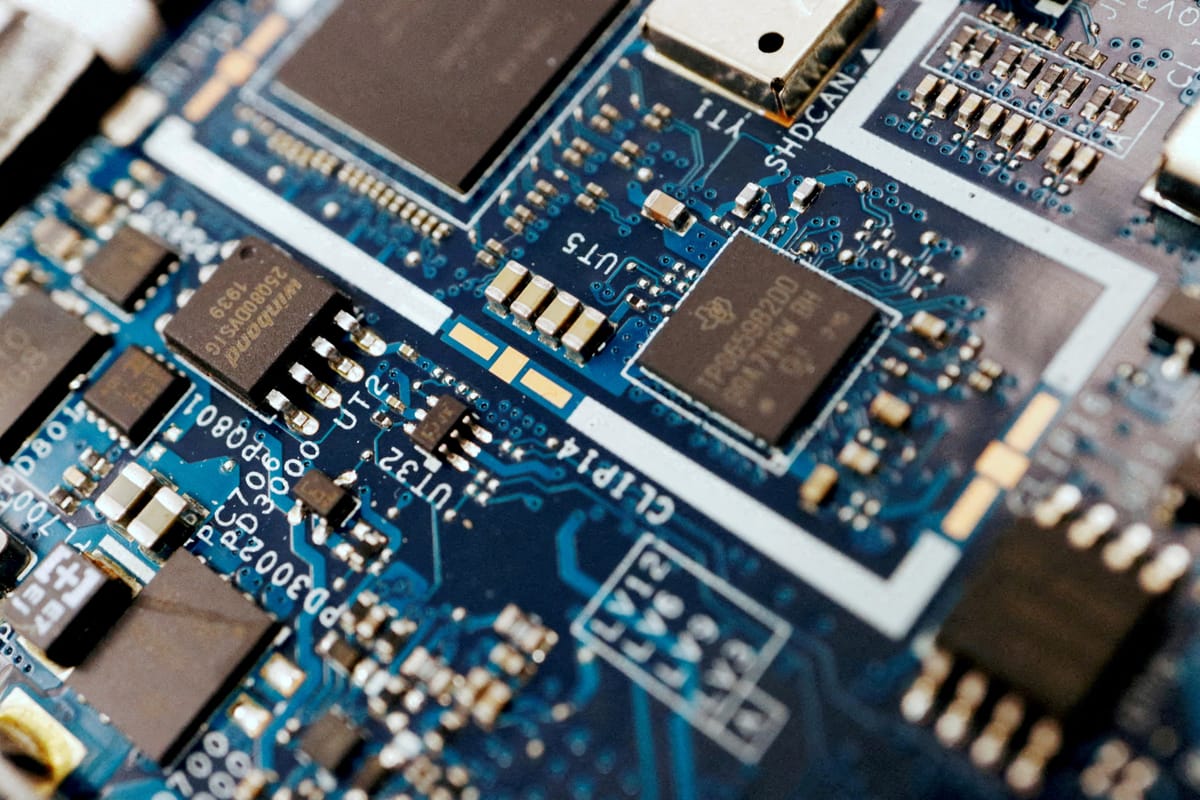US Blocks Tech Exports to China: What's Going On?

So, get this. The U.S. government just told a bunch of companies to stop sending stuff to China unless they get special permission. They even took back permission that some companies already had. Three folks who know about this spill the beans.
Apparently, these new rules are pretty strict and might make things tense with China. Someone in the know said it looks like the goal is to stop China from easily getting certain things they need for important industries. We're talking about things like software for designing computer chips and special chemicals for them too. Also on the list are butane and ethane, some types of machinery, and airplane parts. Yeah, a pretty wide net, huh?
Lots of companies got letters from the U.S. Department of Commerce about this a few days ago. Companies that make that design software for chips, they got letters last Friday saying they'd need a license now to ship to their customers in China. Two sources mentioned this. Some of the big names in that software world are Cadence, Synopsys, and Siemens EDA, which is part of Siemens.
The same two sources said the Commerce Department will look at each request for a license to ship to China one by one. So, it's not like a total ban, just a different way of doing things, I guess? It's hard to say right now if this is part of a bigger plan to get some leverage for trade talks, especially since they've kind of paused on putting on more tariffs.
The Commerce Department did say they're reviewing exports to China that are super important. They also noted that, yeah, in some cases, they've stopped existing permissions or added more rules for licenses while they figure things out. The White House didn't say anything right away when asked what was up.
After the news, shares for Cadence, who didn't want to talk about it, went down over 10%. Synopsys's shares also dropped, almost 10%. Siemens said they're trying to figure out how these new rules will affect their software exports and will share more info when they can.
China's foreign ministry responded to questions from Reuters, saying that the U.S. doing stuff like this messes up how things work with global supply chains. They also said Washington is using technology and trade issues like weapons to keep China out and basically pick on them. They were pretty clear, saying no amount of pressure or sanctions can stop China from developing and moving forward, and no bullying or forcing will shake their plan to be self-sufficient.
But wait, there's a twist. Synopsys's CEO, Sassine Ghazi, said on a call with analysts that the company hadn't gotten a letter or heard anything from the Commerce Department's enforcement bureau. He said, 'We know about the news and people guessing, but Synopsys hasn't gotten a notice... We haven't received a letter.'
After the stock market closed, Synopsys actually stuck with their forecast for how much money they expect to make in 2025. Both their shares and Cadence's bounced back a bit, going up 3.5% after hours.
Honestly, stopping Chinese companies from getting those chip design tools would really hurt the industry. Chinese chip design customers really depend on that top-notch U.S. software. Back in April, the Chinese state news agency Xinhua said Synopsys, Cadence, and Siemens's Mentor Graphics pretty much control over 70% of the market in China. Some Chinese companies that have said they use Synopsys and Cadence software are Brite Semiconductor, Zhuhai Jieli, and VeriSilicon, which helps with chip design.
I guess it's still a bit up in the air. Three sources in the chip design tool industry said on Thursday that business is still going on as usual in China. They're all just waiting to hear more clearly how these new rules are supposed to work.
Someone else, Nori Chiou, an investment director in Singapore, thinks this won't really work and will just help China get better at doing things on their own, kind of like what happened with semiconductors. He also pointed out that there are lots of copied versions of these design tools out there and they aren't hard to find. Chiou believes that if the normal ways of getting the software are blocked, a lot of Chinese companies that make similar tools will do really well.
For example, some Chinese alternatives to the U.S. companies' tools are Empyrean Technology and Primarius Technologies. Their shares jumped a lot, 17% and 20% respectively, after the news.
Remember back in 2023, Huawei said they had already created their own tools for designing chips. They haven't been allowed to use U.S. suppliers since 2019.
If these software makers lose their Chinese customers, it could really hit their profits. A former Commerce Department official said they are the 'true choke point.' He also added that rules to stop sending these design tools to China have been thought about since the time the first Trump was president, but they were decided against because they seemed too aggressive.
China makes up about 16% of Synopsys's yearly money and around 12% of Cadence's. Synopsys works with big chip companies like Nvidia, Qualcomm, and Intel, providing the software and hardware needed to design advanced processors.
The Financial Times had actually reported earlier that the Trump administration told the software companies to stop selling their services to Chinese groups. So, maybe this has been in the works for a while? What do you think will happen next with all of this?


